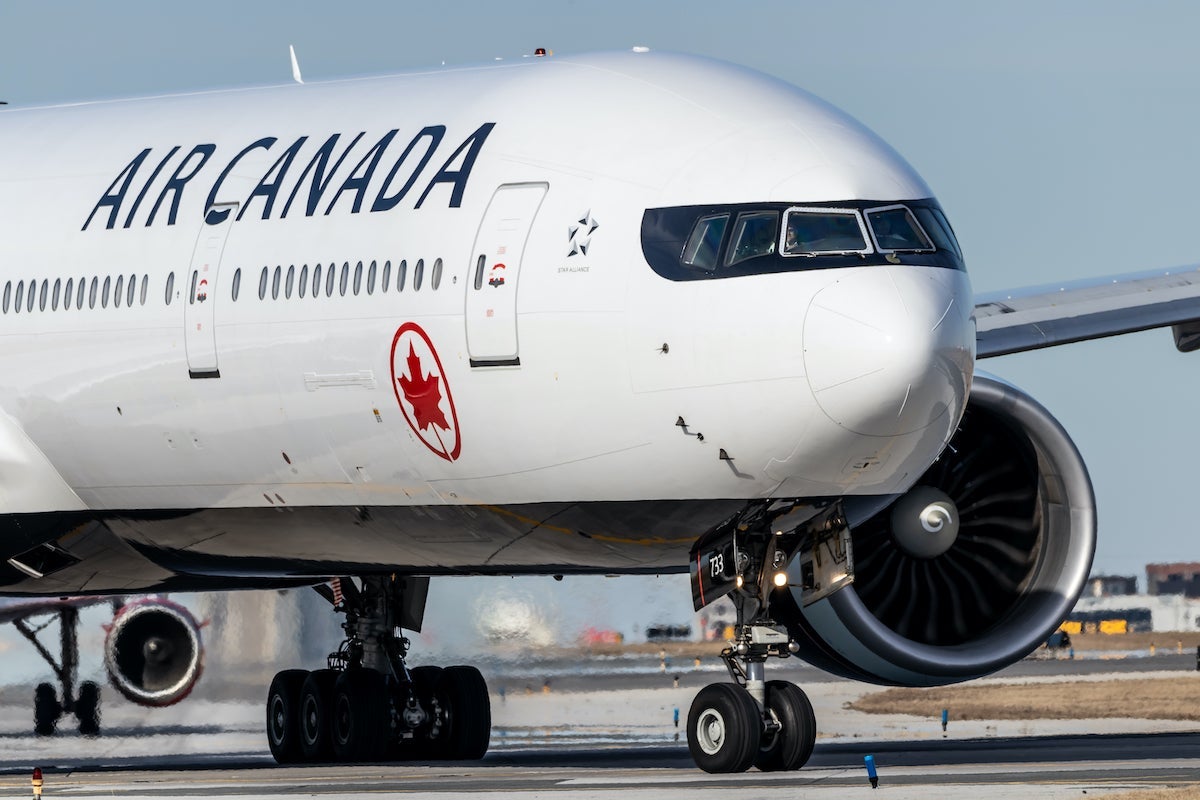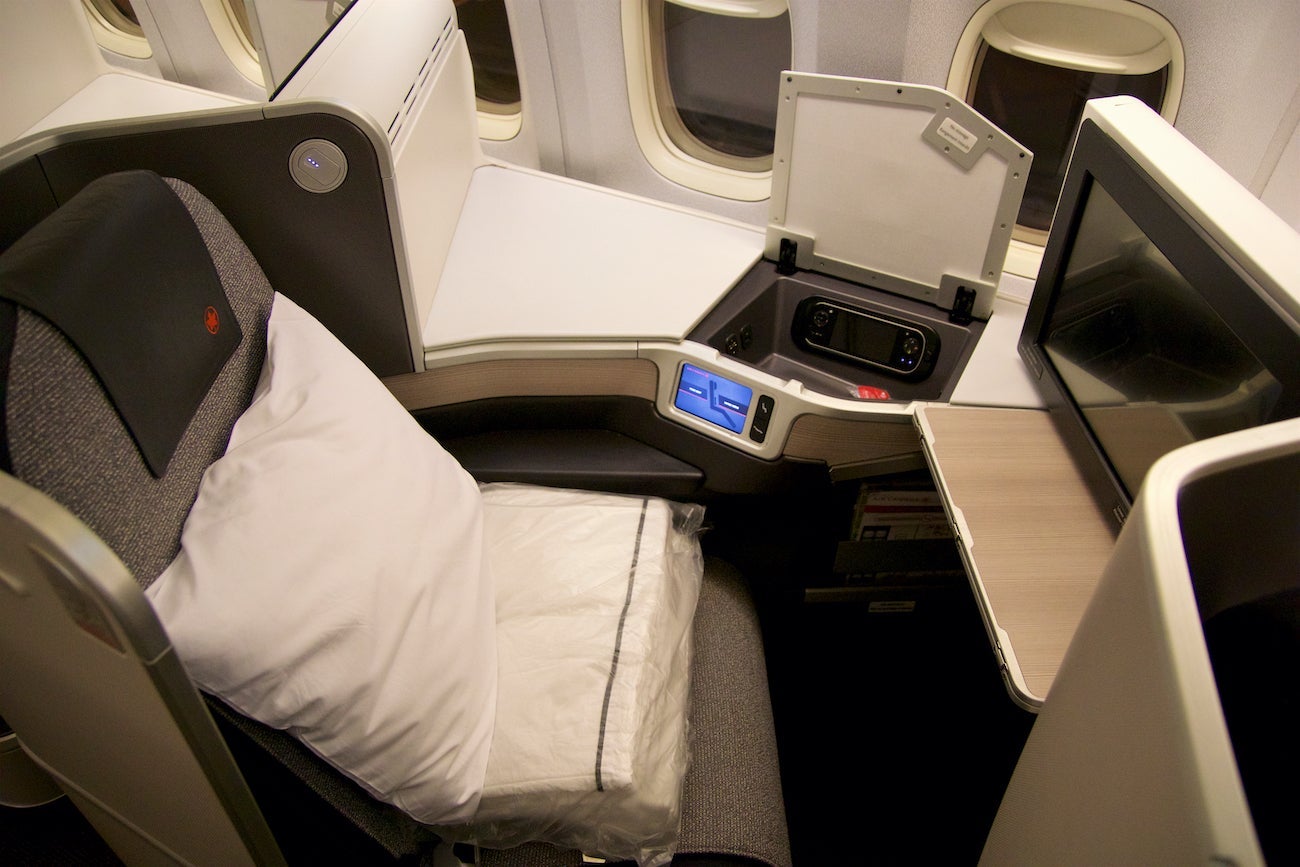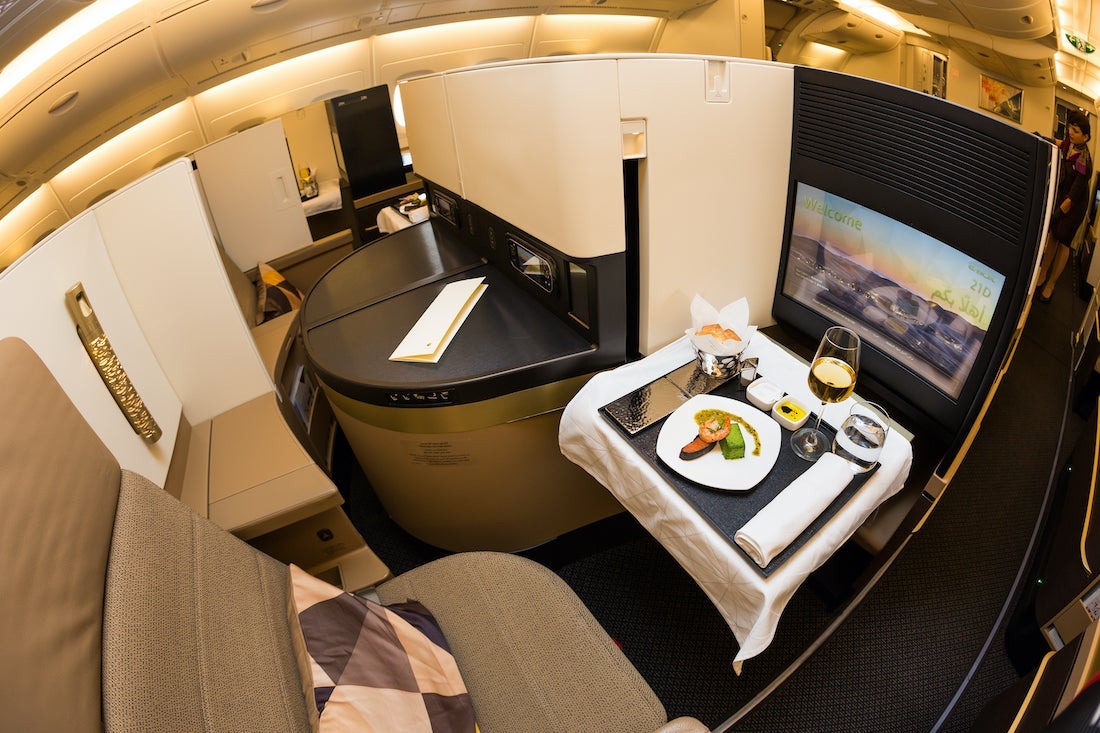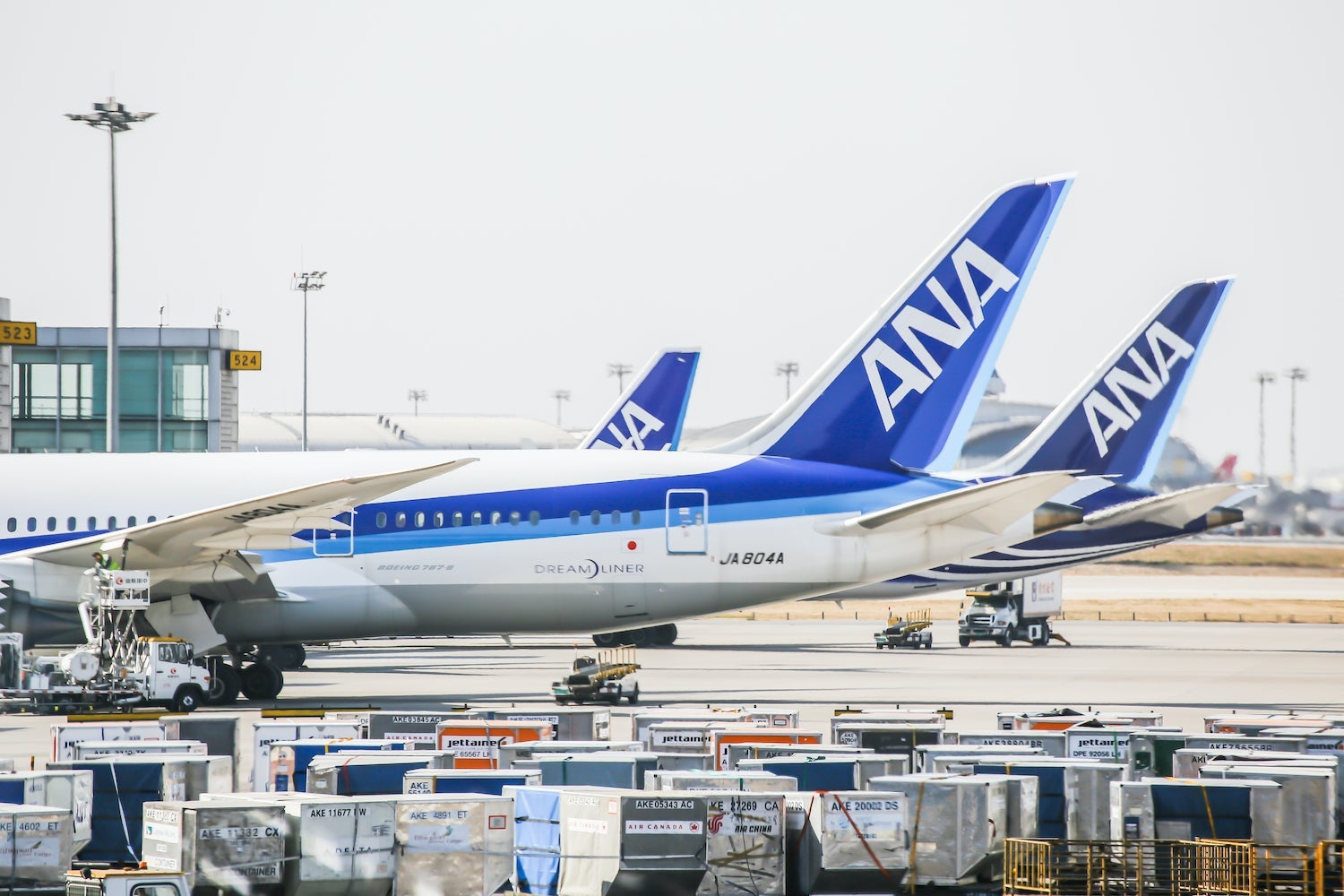Pros and cons of the new Air Canada Aeroplan loyalty program
Since reacquiring Aeroplan, Air Canada has been working on some massive changes to its loyalty program. This includes a revamped award chart, new redemption options and an innovative family points pooling program. These changes make Aeroplan more exciting than ever — especially after having major issues earlier in the year.
That said, there are some objectively negative changes here, too — namely, higher redemption rates. To give you a complete look at the new Aeroplan program and how it affects you as a traveler, I'll lay out all of the pros and cons of the new Aeroplan program in this article.
I'll compare different aspects of the new and old Aeroplan and give you a full look at what to expect when the program rolls out. Let's get started!
For more TPG news delivered each morning to your inbox, sign up for our daily newsletter.
[table-of-contents /]
The cons of the new Air Canada Aeroplan loyalty program

Let's start with the bad news. As discussed, there are a few downsides to the new Aeroplan program, with some of the biggest being higher redemption rates and added fees. Let's take a closer look at how these might affect your travel.
A $39 CAD partner booking fee
One of the more annoying changes to the Aeroplan program is the addition of a partner booking fee. Once the new program is rolled out, members will pay $39 CAD whenever they book flights on one of Air Canada's partners. This is roughly $29.15 USD at the time of writing.
This isn't a huge fee and I understand why Air Canada is adding it. The airline wants to encourage bookings on its own metal, as this is more cost-effective. That said, it's still annoying to see this fee added, especially when most other loyalty programs don't charge it.
As you'll see later in this article, Air Canada dropped other fees like fuel surcharges, so you'll still spend less when booking tickets on some carriers. The major downside to this is booking tickets on United and Swiss which never had large fees to begin with.

Related: 19 things you need to know about redeeming with the new Aeroplan
Higher redemption rates on some awards with distance-based pricing
Higher redemption rates are arguably the worst part of the new Aeroplan program. Some awards require more points than before. Thankfully, the increases aren't too big, but they're worth keeping in mind as you choose which Star Alliance partner to redeem miles with.
The new Aeroplan award chart is split up into four regions: North America, Atlantic, Pacific and South America. Each of these regions has distance-based awards for flights departing from another region and for flights within said region. This means a flight from Newark (EWR) to London (LHR) costs less than a flight from Vancouver (YVR).
Here's a quick look at how pricing on some routes has changed under the new award chart. Note that all prices below are for one-way business class tickets.
Related: Why Aeroplan's higher redemption rates may actually be a better deal
| Route | Old price (Saver) | Old taxes and fees | New price (Saver) | New taxes and fees |
|---|---|---|---|---|
Newark (EWR) to London (LHR) on United | 55,000 | $5.60 | 60,000 | $34.74 |
San Francisco (SFO) to Lisbon (LIS) on TAP | 55,000 | $5.60 | 70,000 | $34.74 |
New York-JFK to Vienna (VIE) on Austrian | 55,000 | $728.51 | 60,000 | $34.74 |
Montreal (YUL) to Paris (CDG) on Air Canada | 55,000 | $428.33 | 60,000 | $45.14 |
Vancouver (YVR) to London (LHR) on Air Canada | 55,000 | $436.56 | 70,000 | $38.98 |
Frankfurt (FRA) to New York-JFK on Lufthansa | 55,000 | $398.60 | 60,000 | $166.45 |
Zurich (ZRH) to Chicago (ORD) on Swiss | 55,000 | $55.04 | 70,000 | $84.19 |
Seattle (SEA) to Tokyo (HND) on ANA | 75,000 | $11.10 | 55,000 | $40.24 |
Chicago (ORD) to Taipei (TPE) on EVA | 75,000 | $5.60 | 75,000 | $34.75 |
New York-JFK to Singapore (SIN) via Seoul (ICN) on Asiana | 77,500 | $13.97 | 85,000 | $43.11 |
New York-JFK to Johannesburg (JNB) via Addis Ababa (ADD) on Ethiopian | 75,000 | $5.60 | 85,000 | $34.75 |
Newark (EWR) to Panama City (PTY) on Copa Airlines | 30,000 | $6.85 | 25,000 | $36 |
Newark (EWR) to Lima (LIM) on United | 55,000 | $20.59 | 50,000 | $49.74 |
Chicago (ORD) to Sao Paulo (GRU) on United | 55,000 | $5.60 | 60,000 | $34.75 |
Los Angeles (LAX) to Bogota (BOG) on Avianca | 55,000 | $20.59 | 35,000 | $49.74 |
Some awards — namely, those to and from Europe — do price higher in premium cabins, but that doesn't tell the whole story. Added perks include cheap stopovers and no fuel surcharges, which can add a ton of value to these redemptions.
So while you'll come out ahead if you're scheduling in two stopovers, you will pay more points (and potentially cash) if you're booking simple one-way or round-trip flights when heading to Europe. On the other hand, some awards to Asia and Central America are cheaper on the points side, which is great to see.
The pros of the new Air Canada Aeroplan loyalty program

But not all the changes are bad — in fact, I think that most of the changes are net-positive for award travelers. Here's a look at all of the pros of the new program, including how to use the program's new stopover feature to beef up the value of your awards.
No more fuel surcharges
The new Aeroplan program joins Avianca LifeMiles and United MileagePlus as another Star Alliance program that doesn't add fuel surcharges to award tickets. Previously, you could have paid over $500 in surcharges on tickets operated by Austrian, Air Canada, Lufthansa, THAI and others.
Now you'll only pay standard taxes and fees on all tickets booked through Aeroplan as well as the $39 CAD partner award fee, when applicable. This makes redemptions on Lufthansa and other premier carriers significantly more affordable with the new reworked program.
Related: 11 of the most innovative and exciting changes coming to Air Canada's Aeroplan
Insanely generous stopover and open-jaw rules let you see the world on the cheap
By far the biggest pro of the new Aeroplan is its generous open-jaw and stopover policy. You can add a single stopover to a one-way ticket and two stopovers to a round-trip ticket, with each costing just 5,000 points. Stopovers are allowed everywhere except within North America.
The interesting thing about this stopover policy is how open-ended it is. From the looks of it, you can add a stopover anywhere on your way to your final destination. This means you could book something like Chicago (ORD) to Paris (CDG), stay for a few days, then continue to Abu Dhabi (AUH) for just 5,000 additional points.
You could then return to Chicago by flying from Abu Dhabi to Hong Kong (HKG) and then connecting to your return flight whenever you'd like. This would cost another 5,000 points, but saves you a ton when compared to booking separate award tickets.
You can add open-jaws to round-trip tickets too, meaning that you can depart and arrive in different cities. For instance, you can book New York-JFK to Frankfurt (FRA) and return on a flight from Paris (CDG) to Chicago (ORD) at no additional cost. These can be mixed with stopovers too, so you can connect within Europe and plan a European adventure on the cheap.
One interesting example would be flying New York-JFK to Frankfurt, staying a few days and flying to Prague (PRG). Then, take the train to Vienna, stay for a few days and fly from Vienna (VIE) to Istanbul (IST) before heading home a few days later. The possibilities are endless.
Related: Your guide to round-the-world award tickets
Mix non-alliance partners with Air Canada and Star Alliance awards

Aeroplan has a ton of airline partners. In addition to being a part of Star Alliance — the world's largest airline alliance — it has non-alliance partners like Azul, Etihad, Cathay Pacific and Gol. You can mix these carriers when booking award tickets, giving you a huge assortment of carriers to fly with.
This is especially useful for stopovers. In the Newark to Paris to Abu Dhabi example mentioned earlier, you could book the first leg on United and the second on Etihad, letting you experience United Polaris business class and the Etihad Business Studio on the same award ticket.
The award chart isn't going away any time soon
Aeroplan's commitment to keeping a standard award chart is another huge pro. This signals that the airline doesn't plan on moving to dynamic pricing any time soon, giving us time to enjoy predictable redemption rates for Star Alliance and non-alliance award tickets.
Additional redemption options
Aeroplan will roll out a number of other redemption options as well. These include lower fees for Wi-Fi, checked bags, lounge access and upgrades. We're waiting on more info on how exactly these awards will be priced. If priced right, this could be an interesting way to upgrade your travel experience.
Additionally, Aeroplan plans to beef up its non-travel redemption options over the coming months. Representatives from Aeroplan told TPG that redemption value will vary. I'm not holding my breath that these will be a good use of points.
Regardless, I think new redemption options are a net-positive for Aeroplan members. Even if you don't use them, it's always nice to have the option.
Earn airline status without flying
Another pro of the new Aeroplan is the ability to earn Altitude 25K status without flying. Under its new Everyday Status program, you can earn 25K status by earning 100,000 Aeroplan points from any eligible transaction. These include base and bonus points earned from travel, credit card spending and purchases made through the Aeroplan shopping portals.
This status tier usually requires 25,000 Status Qualifying Miles (SQM) or 25 Status Qualifying Segments (SQS), plus $3,000 (CAD) in Status Qualifying Dollars (SQD). Unfortunately, you can't earn status through a mixture of everyday spending and Altitude Qualifying Miles.
That said, Altitude 25K isn't the most lucrative status tier. It has base-level benefits like two free checked bags and priority check-in on Air Canada flights. It's nice to be rewarded with status if you're earning these miles anyway, but I wouldn't go out of my way to earn miles for status alone.
Family pooling lets families stretch points further
Finally, the new Aeroplan lets families link their Aeroplan accounts to share points. You can link up to eight accounts to the pool. Points earned by any of the eight can be used to redeem awards. Points earned before linking will be added to the pool too, so this can be an excellent way to consolidate small mileage balances earned by different family members.
This is an excellent benefit for families that fly together. Points earned on partner flights are eligible for pooling too, so U.S.-based families with moderate travel on United Airlines may want to credit flights to Aeroplan. This way, they can combine their points to redeem for award tickets faster.
How does the new Aeroplan stack up to other Star Alliance loyalty programs?

There's no doubt that these changes make the Aeroplan program more attractive to many flyers. At the same time, though, it's not the best for every single Star Alliance redemption.
Here's a quick look at how the new Aeroplan stacks up to other Star Alliance programs.
ANA Mileage Club
ANA Mileage Club has long been one of my favorite Star Alliance programs. The program has extremely low pricing for high-end award tickets. For example, 88,000-mile round-trip business class tickets from North America to Europe. Further, you can add one stopover to round-trip tickets.
On paper, this makes ANA look like a better option for booking Star Alliance awards — but there's more to the story. The two major downsides to ANA Mileage Clubares that the airline passes on fuel surcharges on many tickets and you cannot book one-way awards.
If you're flying on a low-fee airline and want to book a round-trip ticket with a single stopover, use ANA. On the other hand, book one-way awards or tickets on partners that impose fuel surcharges with Aeroplan.
Related: 10 ways to redeem ANA Mileage Club miles for maximum value
Avianca LifeMiles
Avianca LifeMiles is another solid competitor to Aeroplan. The program doesn't pass on fuel surcharges, but does add a $25 booking fee to all award tickets. So when it comes to fees, LifeMiles and Aeroplan are about even.
The upside to booking one-way awards with LifeMiles is that you'll pay less for some tickets. For example, a one-way flight from San Francisco (SFO) to Prague (PRG) via Zurich (ZRH) on Swiss Air costs 63,000 miles with Avianca or 70,000 points with Aeroplan.
Additionally, North America flights over 500 miles are often cheaper with Avianca. A United flight from Newark (EWR) to Pittsburgh (PIT) can be booked for 7,500 Avianca LifeMiles. The same ticket would cost 10,000 Aeroplan points. This is a small difference but is something to keep in mind if you're transferring points from a credit card.
Further, Avianca LifeMiles has more transfer partners. As of this writing, you can transfer points from American Express Membership Rewards, Citi ThankYou and Capital One Rewards (2.1.5 ratio) to LifeMiles. American Express and Capital One points transfer to Aeroplan at a 1:1 and 2:1.5 ratio respectively.
Avianca falls short when it comes to stopovers. The program doesn't offer stopovers of any kind, so you can't use it for multi-stop itineraries. This is a huge disadvantage and one reason you mat want to use Aeroplan over LifeMiles.
Related: 3 reasons your family needs LifeMiles for domestic travel
United Airlines MileagePlus
United and Aeroplan are on the same page about no fuel surcharges, but the similarities end there. United MileagePlus recently got rid of award charts and adopted dynamic pricing for all award tickets. This makes the program unpredictable and — as we've seen over the past few months — partner awards more expensive.
In practice, we've found that most United award tickets are priced the same as or higher than Aeroplan. There may be exceptions to this rule, but they're few and far between in a world of United's dynamic pricing.
United does allow a single free stopover on round-trip international tickets using its Excursionist perk, but one-way tickets aren't eligible. With this in mind, we recommend using Aeroplan over United on most Star Alliance bookings, but it's still in your best interest to double-check pricing every time before you book.
Bottom line
Overall, I think that the new Aeroplan is full of great changes. While the cost of some awards has increased, the removal of high fuel surcharges and the addition of flexible stopovers makes Aeroplan points more versatile than ever before. Plus, it's refreshing to see a new loyalty program stick to standard award charts despite its competitors doing the opposite.
Feature photo by Heather Dunbar/Shutterstock
TPG featured card
at Capital One's secure site
Terms & restrictions apply. See rates & fees.
| 5X miles | Earn 5X miles on hotels, vacation rentals and rental cars booked through Capital One Travel |
| 2X miles | Earn unlimited 2X miles on every purchase, every day |
Pros
- Stellar welcome offer of 75,000 miles after spending $4,000 on purchases in the first three months from account opening. Plus, a $250 Capital One Travel credit to use in your first cardholder year upon account opening.
- You'll earn 2 miles per dollar on every purchase, which means you won't have to worry about memorizing bonus categories
- Rewards are versatile and can be redeemed for a statement credit or transferred to Capital One’s transfer partners
Cons
- Highest bonus-earning categories only on travel booked via Capital One Travel
- LIMITED-TIME OFFER: Enjoy $250 to use on Capital One Travel in your first cardholder year, plus earn 75,000 bonus miles once you spend $4,000 on purchases within the first 3 months from account opening - that’s equal to $1,000 in travel
- Earn unlimited 2X miles on every purchase, every day
- Earn 5X miles on hotels, vacation rentals and rental cars booked through Capital One Travel
- Miles won't expire for the life of the account and there's no limit to how many you can earn
- Receive up to a $120 credit for Global Entry or TSA PreCheck®
- Use your miles to get reimbursed for any travel purchase—or redeem by booking a trip through Capital One Travel
- Enjoy a $50 experience credit and other premium benefits with every hotel and vacation rental booked from the Lifestyle Collection
- Transfer your miles to your choice of 15+ travel loyalty programs
- Top rated mobile app


